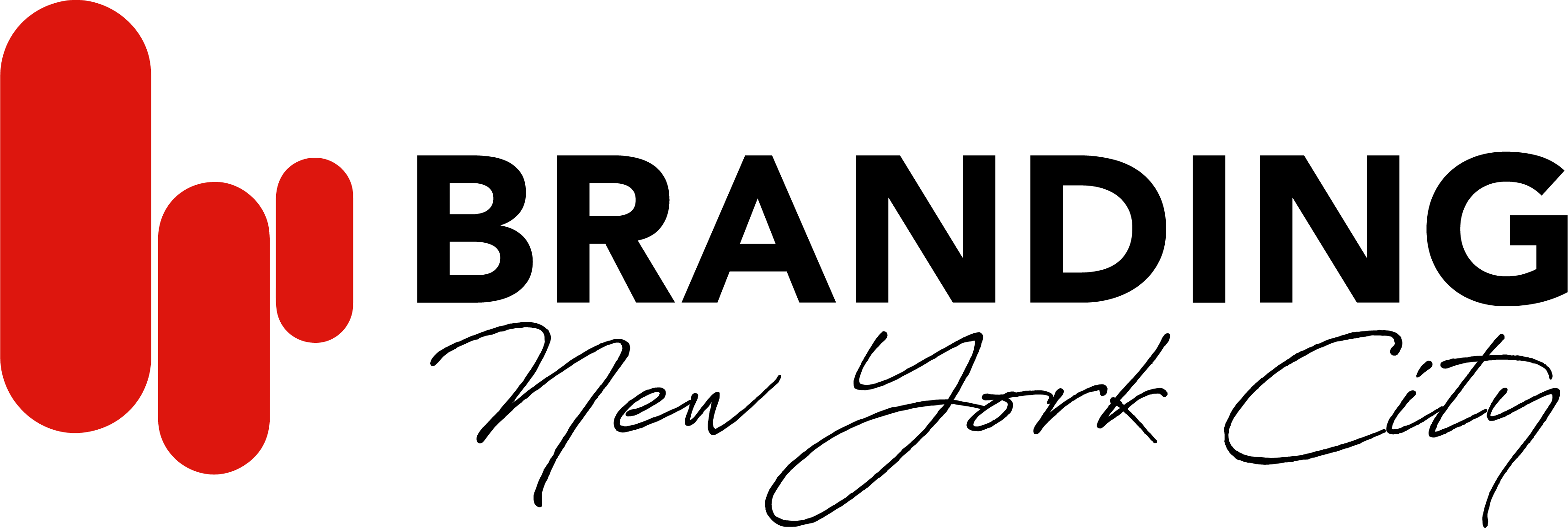Healthcare marketing agencies NYC play a pivotal role in enabling healthcare providers to navigate the ever-evolving landscape of patient engagement and service delivery.
In an era where the healthcare landscape is evolving at a rapid pace, the significance of medical marketing for healthcare providers cannot be overstated. Traditionally, medical professionals relied on word-of-mouth referrals and reputations built over time. However, with the digital revolution and changing patient behaviors, the role of marketing in the healthcare sector has become indispensable. Here are compelling reasons why medical marketing is crucial for healthcare providers today.
PATIENT EDUCATION AND AWARENESS
Medical marketing campaigns that are successful can inform and raise patient knowledge about a range of medical diseases, treatments, preventive care, and services that are available. Patients who are well-informed have the ability to make wiser decisions about their health, which enhances patient satisfaction and health outcomes.
BUILDING TRUST AND CREDIBILITY
In the very competitive world of healthcare, building credibility and trust is critical. Healthcare providers can demonstrate their knowledge, share success stories, and demonstrate their dedication to patient care by using a strategic marketing approach. Building a solid reputation through consistent messaging and visibility promotes trust with both current and new patients.
REACHING TARGET AUDIENCES
Healthcare providers may now more effectively connect and interact with their target audiences thanks to medical marketing and the growth of digital platforms and social media. By connecting with particular groups or those looking for specific medical services, doctors can increase their visibility and draw in new patients through social media campaigns, content marketing, and targeted advertising.

DIFFERENTIATION IN A COMPETITIVE LANDSCAPE
Differentiation is essential in the highly competitive healthcare market of today. Providers can emphasize their distinctive value propositions, specialist services, cutting-edge technology, patient-centric strategies, or practical locations with the help of effective medical marketing. Their unique selling point makes them stand out from rivals and draws clients looking for particular services or specialized care.
ADAPTING TO CONSUMER BEHAVIOR
Before making decisions, patients now actively investigate their healthcare options online. Medical marketing tactics that incorporate a robust online presence—such as educational websites, patient endorsements, and interesting social media posts—are in line with how contemporary customers look for and consume information. Adapting to these behaviors puts providers in a better position to draw in and keep patients.
ENHANCING PATIENT ENGAGEMENT AND LOYALTY
Loyalty is increased when patients are involved beyond their clinical sessions. Medical marketing makes it easier for healthcare professionals to stay in touch with their patients by facilitating continuing communication through email campaigns, blog posts, newsletters, and interactive social media material. In addition to fostering loyalty, this interaction encourages patients to recommend friends and family, which grows the patient base of the provider.
ADHERENCE TO ETHICAL REGULATORY GUIDELINES
While marketing is important, maintaining ethical standards and following regulations is just as critical for healthcare providers. Medical marketing strategies should place a high priority on patient privacy, information accuracy, and compliance with industry-specific laws such as HIPAA, in order to preserve the provider’s reputation for honesty and integrity.


WHAT ARE THE STEPS TO MARKETING DIGITAL HEALTH PRODUCTS?
The delivery and accessibility of healthcare services have been completely changed by digital health solutions. A strategy approach that takes into account the particularities of the healthcare sector, technology developments, and consumer behavior is needed to market these cutting-edge products. The following are crucial actions to promote digital health goods successfully:
MARKET RESEARCH AND UNDERSTANDING AUDIENCE NEEDS
Enough market research must be done before a marketing campaign is launched. Recognize the needs, preferences, and technology- and health-related activities of the target audience. Determine the driving forces behind their adoption of digital health solutions, then adjust your marketing to meet their demands.
DEFINE CLEAR VALUE PROPOSITIONS
Clearly state the digital health product’s distinctive value propositions. Emphasize how it addresses certain healthcare issues, boosts patient outcomes, saves time, lowers costs, or improves convenience. Having a strong value proposition is essential to drawing in end consumers and healthcare providers.
COMPLIANCE AND REGULATION ADHERENCE
Make sure that all healthcare laws, including the Health Insurance Portability and Accountability Act (HIPAA), are strictly followed in order to protect patient privacy and data security. Share information on the product’s compliance maintenance strategy to foster patient and healthcare provider trust.
BUILDING AN ENGAGING ONLINE PRESENCE
Create a website that is easy to use and optimized for search engines (SEO). Provide educational materials that showcase the features and advantages of the product, such as whitepapers, case studies, and blog articles. Use social media to interact with the public, disseminate success stories, and build a product community.
UTILIZE INFLUENCERS AND TESTIMONIALS
Interact with influential people and key opinion leaders (KOLs) in the healthcare sector. The adoption of digital health products can be greatly influenced by their recommendation or by user testimonials that are positive. Among prospective consumers, credibility and trust are established through genuine stories and experiences.
EDUCATIONAL CONTENT AND THOUGHT LEADERSHIP
Become a thinking leader by producing instructional materials. The organization establishes itself as an authority in the sector by holding webinars, podcasts, and seminars that cover technology breakthroughs, industry trends, and the advantages of digital health solutions. This builds attention and confidence.
STRATEGIC PARTNERSHIPS AND COLLABORATIONS
Form alliances with hospitals, clinics, insurance companies, and other healthcare providers. Partnerships can open up new user bases, improve exposure, and ease product integration. Collaborative marketing initiatives can greatly increase product uptake.
CONTINUOUS MONITORING AND ADAPTATION
Analytical tools can be used to track user engagement, conversion rates, and feedback in order to continuously monitor marketing initiatives. In order to maximize marketing campaigns, enhance user experience, and improve messaging for better outcomes, modify plans in light of the information acquired.
ONGOING SUPPORT AND CUSTOMER SERVICE
Provide users with continuous assistance and first-rate customer service. Respond quickly to questions, concerns, and technical difficulties. Effective customer service and pleasant user experiences have a big impact on user retention and recommendations.

WHY DOES THE POINT OF CARE MARKETING MATTER IN HEALTHCARE?
In today’s healthcare environment, point-of-care marketing—defined as focused messaging and promotional activities conducted within healthcare venues where people seek medical attention—belongs to a larger category. By using this strategy, marketers and healthcare professionals can interact with patients at pivotal times and provide pertinent resources and information. The following factors highlight the importance of point-of-care marketing:
CONTEXTUAL RELEVANCE AND TIMELY COMMUNICATION
Patients are actively seeking medical attention or guidance at the point of care, therefore it is a good time to provide important information. When given in this setting, marketing messages are extremely pertinent and have the power to sway a patient’s choice of medical procedures, prescription drugs, or other services.
ENHANCED PATIENT ENGAGEMENT AND EDUCATION
Patients are empowered when informed about their health concerns, available services, treatment options, and preventive measures are provided at the point of care through the use of educational content or awareness campaigns. Patients who are knowledgeable and involved in their healthcare decisions are more likely to take an active role in the process, which improves patient outcomes.
FACILITIES SHARED DECISION-MAKING
Point-of-care marketing aids in fostering a collaborative relationship between healthcare providers and patients. By being given educational materials or tools, patients can help in shared decision-making by being better prepared to talk with their healthcare providers about treatment alternatives, possible risks, and advantages.
OPPORTUNITY FOR PRODUCT AND SERVICE PROMOTION
The point of care offers the perfect setting for pharmaceutical businesses and healthcare institutions to advertise their goods, services, or novel treatment alternatives. Clinics, hospitals, and pharmacies can effectively improve awareness and even encourage greater adoption by displaying pertinent information or samples.
TARGETED AND PERSONALIZED COMMUNICATION
Point-of-care marketing enables customized and targeted communication according to patient demographics and the particular healthcare environment. Marketing campaigns are more effective when they are customized to speak to the needs and concerns of certain patient groups.
COMPLIANCE AND ADHERENCE SUPPORT
Enhancing patient adherence to recommended treatments or medications can be facilitated by marketing materials provided at the point of service. Better health outcomes can arise from increased compliance with medication schedules, which can be achieved by offering instructional materials or reminders about them.
MEASURABLE IMPACT AND INSIGHTS
Healthcare providers and marketers can evaluate the impact of their strategy by directly measuring the success of point-of-care marketing campaigns. Future campaign insights can be gained by monitoring patient engagement, response rates, or actions done after being exposed to marketing materials.

BRANDING NEW YORK CITY – THE TOP HEALTHCARE MARKETING AGENCIES NYC
Are you ready to revolutionize your healthcare brand and captivate your audience like never before? Branding New York City, recognized among the prestigious Top 100 healthcare marketing agencies NYC, invites you to embark on a transformative journey toward success.
Reach out to Branding New York City today! Let’s ignite your healthcare brand’s journey toward unparalleled success.








